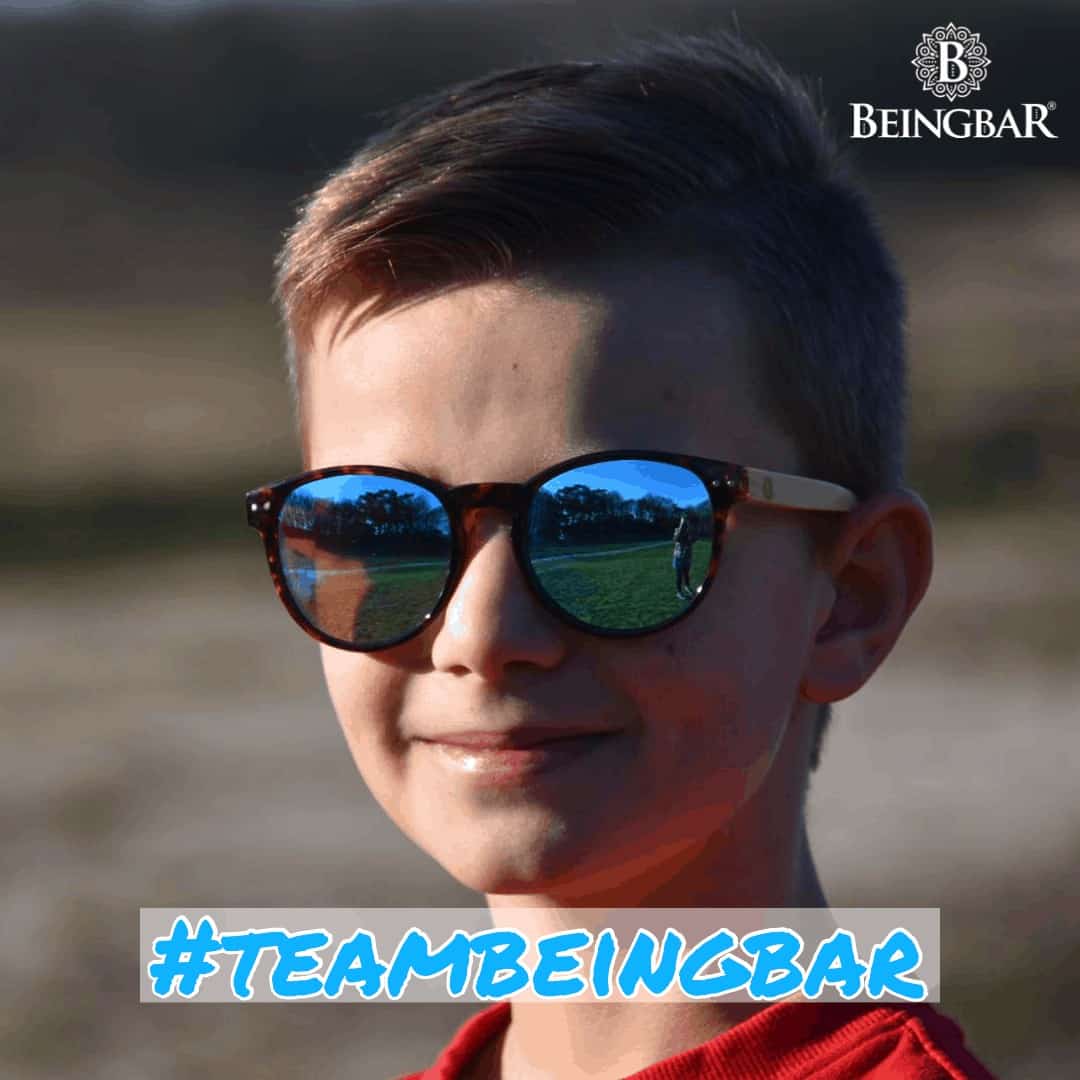What is UV (And why is UV protection so important for your eyes?)
Sunglasses have more and more transformed to being a fashion item, rather than something to protect your eyes with UV and Up to the point where we now sometimes call it “Sun Eyewear” and focus on shapes and colors more than on their protective qualities.
With a focus on the fashion element you might be looking for more variation in shapes, colors, brands. And you’re less concerned with lenses and filter quality. And why would you? Enjoy the Summer, the Sun and your cool looking Sunglasses and let us be concerned with quality, rules and regulation. But in case you want to understand the basics of ultraviolet Protection for your eyes, look no further!

What is UV?
“UV” stands for Ultraviolet. It is a form of electromagnetic radiation that is naturally emitted by the sun. There is a lot of scientific evidence supporting that ultraviolet light during the day is important for a healthy body, healthy mind and good night’s sleep. However, UV light is getting more and more attention in recent years because it becomes clearer how UV radiation works. And how it can cause serious damage to our eyes and skin. ultraviolet rays from the sun may lead to eye desease and eye damage. Examples are macular degeneration, cataract, sunburn of the cornea and cancer (e.g. eyelids).
But how?
There are three different types of ultraviolet radiation:
UVA (or ultraviolet-A)
Up to 95% of the rays from the sun that reach our skin and eyes are ultraviolet-A. The UV-A rays have the least energy from the three types of UV rays. It causes aging of the skin over time. This type of ultraviolet radiation can cause damage to the retina (back of your eye). BEINGBAR® Sun Eyewear sunglasses protect your eyes from ultraviolet-A. As well as all other brands of sunglasses that meet standards and regulations in the US and Europe and many other places in the world. For instance ultraviolet 400.
UVB (or ultraviolet-B)
UVB are the rays that cause sunburns and direct damage to the skin. UV-B is scientifically connected to different types of skin cancers. 5% of the UV rays that reach our skin and eyes are ultraviolet-B. The front of your eyes blocks most of the ultraviolet-B rays but still these rays are believed to be the most damaging to your eyes. As with UV-A, BEINGBAR® Sun Eyewear sunglasses protect your eyes from UV-B, because they meet standards and regulations in the US and Europe and many other places in the world.
UVC (or UV-C) rays
UV-C is believed to be the most damaging of the ultraviolet rays. Luckily, the natural ultraviolet-C from the sun does not pass the ozone in our atmosphere. So it normally does not reach our eyes or our skin. There are some other sources of UV-C, including man-made sources. Examples of such sources are solaria and tanning beds. You should know that standard sunglasses normally are not suitable to protect from artificial radiation such as tanning beds.
Ultraviolet Rays reflection and other facts
Some interesting facts that you should know about ultraviolet rays: water, snow, roads as well as other surfaces reflect UV rays. So even when you are sitting under an umbrella you can still receive UV rays. UV rays also go through clouds and even through some types of clothing materials. So these will not always protect you sufficiently.
When you go hiking in the mountains and higher areas there will be more UV rays. Especially if you are skiing you need to take extra precautions: you are on high ground with more UV and the snow reflects and amplifies whatever UV rays are already present.
Protecting your Eyes and Skin from UV-rays
You should protect your skin form the sun, especially in the middle of the day, when the sunlight is at its strongest. Your eyes need protection too, so wearing sunglasses is always a good idea. Sunglasses normally protect against AV-A and UV-B rays if they meet the strict applicable regulations. As said: UV-C normally does not reach the ground or your eyes because it is filtered by the ozone layer.
Polarized lenses vs Ultraviolet rays
Polarized lenses do not protect against ultraviolet rays more than standard sun lenses. Polarized lenses are sunglass lenses that have an additional layer for polarization. So polarized sunglasses protect your eyes from UV light, regardless of the polarization. The polarized lenses give more comfort and contrast because light from horizontal surfaces is blocked. Side note: that’s why you should not use polarized sunglasses for driving in the evening or at night, because it filters our light that you need to watch the road.
But that doesn't mean you don't need polarized lenses! Once you try these you will notice the difference. Images are sharper and clearer. Glare and reflection are filtered out. And they are overall extremely comfortable.
So, this concludes this article about what UV is and why UV protection is so important for your eyes. Are you interested in reading more about high quality sunglasses? And more specifically in shades that take a different approach. BEINGBAR shades are the ultimate conscious and sustainable sunglasses, made with natural materials. For people who make their own conscious choices. Click here to read more. Or visit BEINGBAR.com


